Unveiling the Silent Spring: Edward Said's Critique of Environmental Determinism

4.7 out of 5
| Language | : | English |
| File size | : | 8440 KB |
| Text-to-Speech | : | Enabled |
| Screen Reader | : | Supported |
| Enhanced typesetting | : | Enabled |
| Word Wise | : | Enabled |
| Print length | : | 148 pages |
In his groundbreaking book "Silent Spring," published in 1962, Edward Said deconstructs the pervasive notion of environmental determinism, a theory that suggests that the physical environment has an inevitable and unyielding influence on human societies.
Challenging the Master Narrative
Said argues that environmental determinism often serves as a tool for domination and control by powerful elites. By asserting that human behavior is inherently shaped by external factors beyond their control, it delegitimizes resistance and social change.
For example, in colonial contexts, the claim that tropical climates made indigenous populations "lazy" and "unfit for self-governance" was used to justify European rule. Similarly, the idea that certain racial groups were biologically inferior was used to support racist policies.
The Role of Culture and Agency
Said emphasizes the importance of culture and human agency in understanding the interactions between humans and their environment. He argues that while the physical environment can constrain or influence human behavior, it does not determine it.
Instead, culture, history, and social structures play a crucial role in shaping how people perceive, adapt to, and transform their environment. Human beings are not passive recipients of environmental forces; they are active agents who can make choices and shape their own destinies.
Said's critique of environmental determinism has had a profound impact on fields such as postcolonial studies, environmental history, and environmental justice. It has challenged the idea that the natural world is a fixed and immutable force that humans must simply adapt to.
Case Studies and Historical Evidence
Throughout "Silent Spring," Said provides numerous case studies and historical examples to support his arguments. He examines the consequences of environmental degradation in places like the Our Book Library rainforest, the American West, and the Mediterranean Sea.
He also traces the evolution of environmental thought, from the Enlightenment to the Romantic era, demonstrating how different cultural and political contexts have shaped our understanding of the relationship between humans and the environment.
Implications for Environmental Action
Said's work has significant implications for environmental action. By rejecting the idea of environmental determinism, he opens up the possibility for empowering individuals and communities to address environmental challenges.
If human behavior is not fixed by environmental factors, then it is possible to change the way we interact with the natural world. We can develop more sustainable practices, reduce our carbon footprint, and work towards a more just and equitable society.
"Silent Spring" as a Magnum Opus
Edward Said's "Silent Spring" is a seminal work that has transformed our understanding of the relationship between humans and the environment. His critique of environmental determinism has challenged dominant narratives, empowered marginalized communities, and inspired generations of environmental activists.
As the world faces unprecedented environmental challenges, the lessons from "Silent Spring" are more relevant than ever. By embracing Said's insights, we can move beyond fatalism and work towards creating a more sustainable and just future for all.
4.7 out of 5
| Language | : | English |
| File size | : | 8440 KB |
| Text-to-Speech | : | Enabled |
| Screen Reader | : | Supported |
| Enhanced typesetting | : | Enabled |
| Word Wise | : | Enabled |
| Print length | : | 148 pages |
Do you want to contribute by writing guest posts on this blog?
Please contact us and send us a resume of previous articles that you have written.
 Book
Book Novel
Novel Page
Page Chapter
Chapter Text
Text Story
Story Genre
Genre Reader
Reader Library
Library Paperback
Paperback E-book
E-book Magazine
Magazine Newspaper
Newspaper Paragraph
Paragraph Sentence
Sentence Bookmark
Bookmark Shelf
Shelf Glossary
Glossary Bibliography
Bibliography Foreword
Foreword Preface
Preface Synopsis
Synopsis Annotation
Annotation Footnote
Footnote Manuscript
Manuscript Scroll
Scroll Codex
Codex Tome
Tome Bestseller
Bestseller Classics
Classics Library card
Library card Narrative
Narrative Biography
Biography Autobiography
Autobiography Memoir
Memoir Reference
Reference Encyclopedia
Encyclopedia Editions La Plume D Eros
Editions La Plume D Eros Eleanor Brown
Eleanor Brown Elizabeth Anne
Elizabeth Anne Elisabeth Wolf
Elisabeth Wolf Elizabeth Holmes
Elizabeth Holmes Lidia Stanton
Lidia Stanton Elena Paige
Elena Paige Edward Yardeni
Edward Yardeni Jerry D Moore
Jerry D Moore Eckhart Tolle
Eckhart Tolle Gael Wood
Gael Wood Eileen Edna Power
Eileen Edna Power Leila Miller
Leila Miller Dylan Tomine
Dylan Tomine Elizabeth Bishop
Elizabeth Bishop Duncan Whitehead
Duncan Whitehead Elie Wiesel
Elie Wiesel Elissa Wall
Elissa Wall Ed Lambert
Ed Lambert Fabrice Moussus
Fabrice Moussus
Light bulbAdvertise smarter! Our strategic ad space ensures maximum exposure. Reserve your spot today!
 Gustavo CoxFollow ·4.8k
Gustavo CoxFollow ·4.8k Cormac McCarthyFollow ·9.9k
Cormac McCarthyFollow ·9.9k August HayesFollow ·12.8k
August HayesFollow ·12.8k Michael CrichtonFollow ·7.5k
Michael CrichtonFollow ·7.5k Nathaniel HawthorneFollow ·9.1k
Nathaniel HawthorneFollow ·9.1k Austin FordFollow ·7.3k
Austin FordFollow ·7.3k Clarence BrooksFollow ·4.2k
Clarence BrooksFollow ·4.2k Jesus MitchellFollow ·6k
Jesus MitchellFollow ·6k
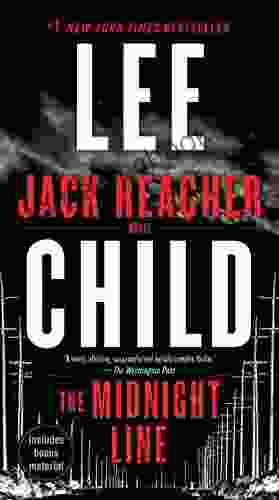
 Clarence Brooks
Clarence BrooksUncover the Secrets in the Dead of Night: Dive into Lee...
Step into the heart-stopping world of Jack...
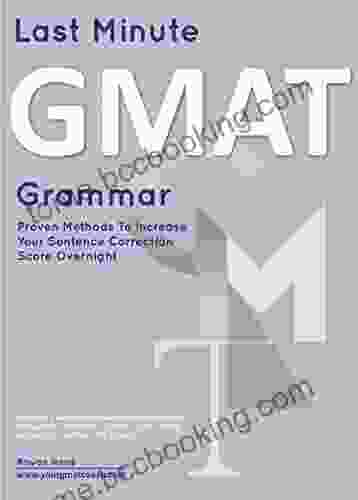
 Clay Powell
Clay PowellAce the GMAT Grammar Section: Your Last-Minute...
The GMAT is a challenging...
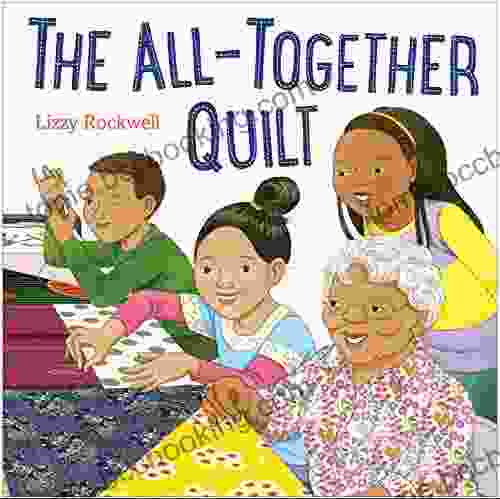
 Salman Rushdie
Salman RushdieEmbark on a Heartwarming Journey with "The All Together...
: Immerse yourself in the charming world of...
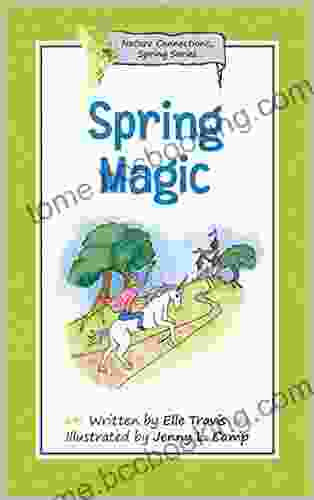
 Dawson Reed
Dawson ReedSpring Magic: Stunningly Illustrated Fun for Kids to...
Welcome to the Enchanting World of...
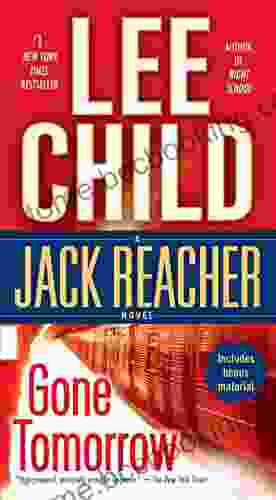
 Bradley Dixon
Bradley DixonGone Tomorrow: A Gripping Thriller by Lee Child that Will...
In the literary realm of thrillers, few...
4.7 out of 5
| Language | : | English |
| File size | : | 8440 KB |
| Text-to-Speech | : | Enabled |
| Screen Reader | : | Supported |
| Enhanced typesetting | : | Enabled |
| Word Wise | : | Enabled |
| Print length | : | 148 pages |














